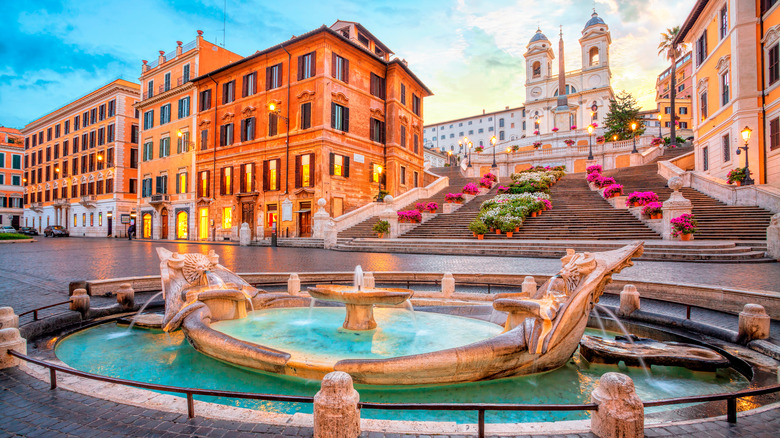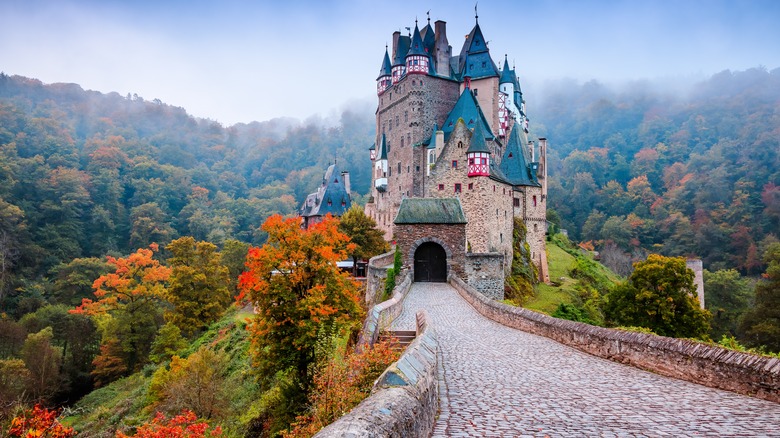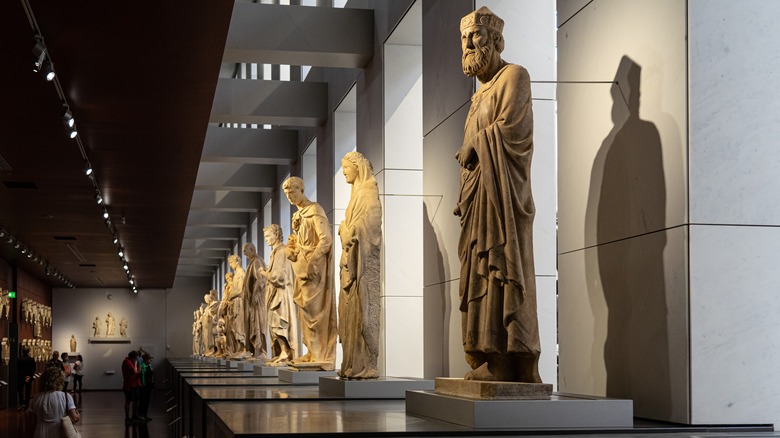The Best Rick Steves-Approved Destination Dupes To Avoid Crowds In Europe
Visiting Europe's most sought-after destinations may be enthralling, but the constant presence of crowds can easily taint the experience. Europe travel expert Rick Steves has encouraged travelers to embrace places that aren't on every tourist's bucket list. He told Travel + Leisure, "Go to the less-famous places, and treat them like the famous places." A shift in mindset can open you up to a world of exciting possibilities that many travelers overlook.
Along with the Travel + Leisure interview, Steves has shared some first-rate destination dupes on his website. Destination dupes is a flexible term — the purpose is to locate places with similar offerings of high quality, not find precise copies of hotspots. The TV host's tips are merely a starting point for planning your trip to Europe. One approach is to pinpoint sites that cater to your niche interests. "I love human bones, so in Rome, while everyone's at St. Peter's, I visit the Capuchin Crypt, with thousands of 18th-century bones stacked artistically," he writes. On a broader note, there's a slew of alternate landmarks, cities, and attractions that Steves recommends checking out.
Less touristy places in Germany and Scotland
When researching destinations in Europe, it's natural to add more popular places to your itinerary. But it can be a trap; Rick Steves identifies the Rhine River in Germany as an example of such. "This area, while pretty, also has lots of traffic, train noise, commercialism, and bus tourism," he writes on his website. Alternatively, the travel guru recommends spending time along the Mosel River, a more serene setting. "The misty Mosel is what some visitors hope the Rhine will be — peaceful, sleepy, romantic villages slipped between steep vineyards and the river." In this destination dupe, you can taste some of the country's finest Riesling in a quieter atmosphere. The Mosel River's magical essence is embodied in its surrounding castles. Steves suggests touring the Burg Eltz Castle, a preserved rarity of its kind.
Steves offers similar advice for choosing European cities. In an interview with Travel + Leisure, he proposes going to Marseille instead of Paris and Glasgow instead of Edinburgh. Some flexibility is key, as a city's vibe may differ from its ultra-famous counterpart. Glasgow, for example, shines with its trendy, bohemian feel, which doesn't exactly characterize the regal Edinburgh. Comparably, Glasgow has a rich artistic and cultural scene — but doesn't attract as many tourists. In an article on his website, Steves praises Glasgow for its remarkable architecture, innovative mural art, and bustling nightlife. Scotland's largest city is full of incredible, free museums, like the Kelvingrove Art Gallery.
Consider museum alternatives
According to Rick Steves, you can find some spectacular museum dupes in Europe. Speaking to Travel + Leisure, he mentions Florence's Opera del Duomo Museum as a substitute for the prominent Uffizi Gallery, as travelers won't have to deal with lengthy wait times. The less crowded museum similarly showcases Renaissance art and sacred sculptures. At the Opera del Duomo, you'll marvel at iconic works such as Ghiberti's original Gates of Paradise doors and Michelangelo's Pietà sculpture.
If you just can't resist exploring a busier establishment, Steves has some sound advice: "At state-run museums in Italy, such as Florence's Uffizi Gallery, admission is free on the first Sunday of the month — so they're very crowded. It's not worth enduring the mob scene to save a few dollars — visit on a paid day instead." Additionally, Steves advises travelers to purchase advance tickets online. While crowd-maneuvering will likely be inevitable at well-known sites, you won't have to endure long ticket-buying lines if you make reservations ahead of time. It's understandable if you want to visit Europe's hotspots, but don't rule out exploring those hidden gems that aren't jam-packed with tourists. SÌ?


